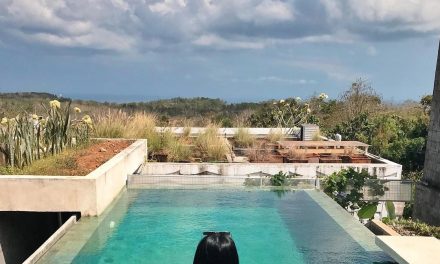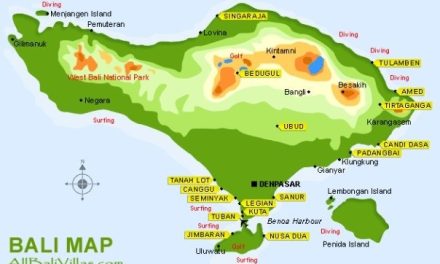Bali—often called the Island of the Gods—is a paradise renowned for its stunning landscapes, vibrant culture, and warm-hearted people. However, as its popularity has surged, so too has the need for sustainable tourism experiences. My own journey through Bali opened my eyes to the importance of preserving this beautiful island while enjoying its offerings responsibly.
Recognizing the Beauty and Its Fragility
Upon arriving in Bali, I was immediately captured by the lush rice terraces, sacred temples, and pristine beaches. However, as I delved deeper, it became glaringly obvious that Bali is at a crossroads. For every breathtaking sunset, there’s a reminder of the environmental impact of over-tourism. Reports of plastic waste on beaches and the strain on local resources saddened me. It was a personal wake-up call, a reminder that I, as a traveler, hold the power to influence how tourism unfolds.
Choosing Eco-Friendly Accommodations
One of the first steps to embracing sustainable tourism in Bali is to choose eco-friendly accommodations. During my stay, I chose a charming eco-resort nestled amidst the rice paddies in Ubud. Not only did the resort utilize sustainable practices—like solar energy and local sourcing for their restaurant—but they also offered workshops on Balinese culture and cooking.
Imagine waking up to the sound of birds chirping, sipping your morning coffee made from locally grown beans, and engaging with the community of artisans who work just down the way. It’s these moments that create profound connections, reminding us that travel is about experience, not just sightseeing.
Exploring Local Markets
While in Ubud, I ventured into the local market, where scents of spices and fresh produce wafted through the air. I found joy in buying local handicrafts and fruits directly from the artisans, knowing that my purchases supported their livelihoods. Instead of greedily grabbing every trinket in sight, I practiced mindful shopping. I selected items that spoke to me personally: a hand-carved wooden figure, a woven basket made from natural fibers, and even some handmade soap.
Engaging with local vendors opened my eyes to their stories and the cultural significance behind each craft. One vendor even shared with me how eco-conscious practices have started to shape their craft. It’s a striking realization when you can see how your choices ripple through the community.
Embracing Responsible Wildlife Interaction
Bali’s wildlife is stunning, and who could resist the allure of visiting a monkey forest? Stepping into the Sacred Monkey Forest in Ubud, I was both thrilled and cautious. The monkeys are delightful yet unpredictable! Instead of feeding them, which is discouraged, I observed their behavior while maintaining a safe distance.
Interactive experiences should always prioritize the welfare of the animals. For example, some sanctuaries in Bali focus on rehabilitation rather than entertainment, allowing visitors to witness animals in a more natural environment. Doing my research beforehand not only enriched my visit but also ensured that I was supporting ethical wildlife tourism.
Participating in Beach Clean-ups
One particular day, I joined a local beach clean-up organized by a community group dedicated to preserving Bali’s coastline. It was a transformative experience. Alongside both locals and fellow travelers, we came together to pick up plastic waste littering the shores of Seminyak Beach.
Not only did we collect tons of trash, but we also forged new friendships and shared stories about our origins, sparking conversations about sustainability and personal responsibility. It was fulfilling to contribute actively to the island that had welcomed me with open arms.
Supporting Sustainable Tours
If you’re looking for unique experiences, I highly recommend seeking out sustainable tour operators. I booked a guided trek through the scenic Mount Batur region with a local who focused on environmental education. Instead of a standard sightseeing tour, the guide shared insights on the indigenous flora and fauna, cultural practices, and the impact of climate change on the area.
Imagine climbing the mountain as the sun rises, the sky painting hues of orange and gold, while your guide recounts how the community is working to protect their sacred land. This was not just hiking; it was an education in conservation and respect for nature.
Practicing Mindfulness and Respect
Travel is about more than just the places you visit; it’s about the people and cultures that shape these locations. As I soaked in the vibrant Balinese culture, I made a conscious effort to be respectful—of local customs, traditions, and the environment. I learned a few basic Indonesian phrases, which delighted locals and opened doors to deeper connections.
Taking part in a traditional ceremony or simply asking questions about local customs can elevate your travel experience from a tourist to a respectful traveler. For instance, during a festival at a local temple, I found myself welcomed with open arms, embracing the spirit of community and gratitude.
Final Thoughts
Sustainable tourism experiences in Bali are about more than just environmental consciousness; they embody respect for the island’s culture, community, and future. Each small action contributes to the larger narrative of preservation and care for this breathtaking destination we all adore.So, the next time you find yourself planning a trip to Bali, I encourage you to consider how your choices can foster sustainable tourism. Reflect on how you can leave a positive impact on the journey—a ripple effect that transcends borders.Let’s travel consciously, cherish our experiences, and leave behind a legacy of respect for the places we love. After all, Bali is more than just a destination; it’s a treasure worth preserving. Happy travels!






